
Democracy Index: Most Democratic Countries in 2024
In a democracy, governments form where the citizens either make the laws they’ll live under or elect representatives. By understanding how different democracies function, you’ll see what kinds of factors shape countries and governments.
If you’re moving to a new country, it’s important to learn about how democracy works there.
The “Absolute Musts” of a Democracy
Here are the main characteristics that make up a democracy:
- A multiparty political system and a competitive environment
- Free and fair elections
- A transparent-open state that respects the laws
- A state that’s committed to peaceful power transferences
- An autonomous media that’s free from government control or influence
- Preservation of the civil liberties and political rights for every citizen, regardless of being part of the majority or a minority
10 Most Democratic Countries in the World
Let’s see the 10 most democratic and 10 least democratic countries in the world. The data is specified by the Economist Intelligence Unit (EIU) in the Global Democracy Index 2022.

 10. Taiwan
10. Taiwan
Taiwan has a competitive and healthy democratic system that has enabled the peaceful power transfers of tirhd parties. The country protects its citizens’ civil liberties and political rights.
- Electoral process and pluralism: 10.00
- Functioning of government: 9.64
- Political participation: 7.78
- Political culture: 8.13
- Civil liberties: 9.41

 9. Netherlands
9. Netherlands
The Netherlands ranks among the top ten countries in the index with improved scores in 2022. The Netherlands is a parliamentary representative democracy. Also, it is a constitutional monarchy, meaning that the country is organized as a decentralized unitary state.
- Electoral process and pluralism: 9.58
- Functioning of government: 8.93
- Political participation: 8.33
- Political culture: 8.75
- Civil liberties: 9.41
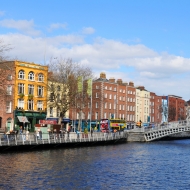
 8. Ireland
8. Ireland
Ireland well respects civil liberties and political rights are well-respected. The country has a stable democracy, and the judiciary is independent, which is a strong indicator of democracy.
- Electoral process and pluralism: 10.00
- Functioning of government: 8.21
- Political participation: 8.33
- Political culture: 10.00
- Civil liberties: 9.12

 7. Switzerland
7. Switzerland
The nature of the political system in Switzerland depends on direct democracy and decentralization. The government of Switzerland is a multilingual coalition consisting of members of four prime parliamentary parties in the country.
- Electoral process and pluralism: 9.58
- Functioning of government: 9.29
- Political participation: 8.33
- Political culture: 9.38
- Civil liberties: 9.12
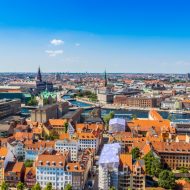
 6. Denmark
6. Denmark
The government of Denmark respects free speech and association. Also, the citizens hold full civil liberties, political rights, and voting rights in an environment of free and fair elections. The country has robust democratic values and structures.
- Electoral process and pluralism: 10.00
- Functioning of government: 9.29
- Political participation: 8.33
- Political culture: 9.38
- Civil liberties: 9.41

 5. Finland
5. Finland
The parliamentary monarchy of Sweden operates free and fair elections as well as a solid multiparty system. Sweden guarantees its citizens political rights and civil liberties by law and implements these laws in practice.
- Electoral process and pluralism: 10.00
- Functioning of government: 9.64
- Political participation: 8.33
- Political culture: 8.75
- Civil liberties: 9.71
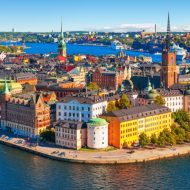
 4. Sweden
4. Sweden
The parliamentary monarchy of Sweden operates free and fair elections as well as a solid multiparty system. Sweden guarantees its citizens political rights and civil liberties by law and implements these laws in practice.
- Electoral process and pluralism: 9.58
- Functioning of government: 9.64
- Political participation: 8.33
- Political culture: 10.00
- Civil liberties: 9.41
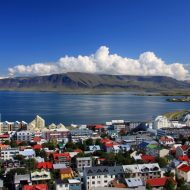
 3. Iceland
3. Iceland
As the third-most democratic country in the world, the parliamentary democracy in Iceland has always maintained and improved civil liberties and political rights.
- Electoral process and pluralism: 10.00
- Functioning of government: 9.64
- Political participation: 8.89
- Political culture: 9.38
- Civil liberties: 9.71
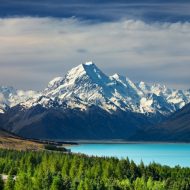
 2. New Zealand
2. New Zealand
New Zealand guarantees full civil liberties and political rights to its citizens. Moving up to second from fourth place and staying in second, the country showed great democratic improvement. New Zealand has been a country of free and fair elections.
- Electoral process and pluralism: 10.00
- Functioning of government: 9.29
- Political participation: 10.00
- Political culture: 8.75
- Civil liberties: 10.00
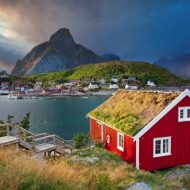
 1. Norway
1. Norway
Norway is an excessively robust democracy. The country respects the civil liberties of its citizens, and the government is being held to account by civil society actors and independent media. Moreover, women, minority groups, and LGBTIQ+ people are well represented and protected by anti-discrimination laws.
- Electoral process and pluralism: 10.00
- Functioning of government: 9.64
- Political participation: 10.00
- Political culture: 10.00
- Civil liberties: 9.41
How EUI Measures Democracy
On a scale from 0 to 10, the EIU assesses 60 indicators that are divided into five basic categories as follows:
- Civil liberties
- Electoral process and pluralism
- Functioning of the government
- Political culture
- Political participation
After rating each category on the specified scale, EIU calculates an overall average to present the index.
Below, you can see the democracy levels corresponding to scores according to the index:
- Full democracies (8 to 10):
- Free and fair elections
- Political rights and civil liberties
- Strong political culture
- Satisfactorily functioning government
- Diverse and autonomous media
- An effective checks and balances system
- Independent judiciary
- A constantly flourishing democracy
- Flawed democracies: (6 to 8):
- Free and fair elections
- Political rights and civil liberties
- Inadequate or ineffective governance
- Underdeveloped political culture
- Weak political participation
- Hybrid regimes: (4 to 6):
- Irregularities regarding the elections
- Pressure by the government on opposition
- Weak political culture
- Malfunctioning or ineffective government
- Weak rule of law
- Weak civil society
- Pressure on the press
- Dependent judiciary
- Authoritarian regimes (0 to 4):
- No free and fair elections
- Absence of state political pluralism
- Abuse of civil liberties
- Controlled or state-owned media
- Dependent judiciary
- Censorship
- No freedom of speech
According to the data the index provides, these 10 countries enjoy full democracies. Advanced levels of protection of political rights and civil liberties, gender equality, and non-discrimination policies make these countries the top 10 democratic countries in the world.
10 Least Democratic Countries in the World
Find below the list of the 10 least democratic countries in the world according to the Global Democracy Index by the Economist Intelligence Unit:
10. Equatorial Guinea
The repressive authoritarian regime in Equatorial Guinea came to power through a military coup. Therefore, the judiciary is dependent on the president and all kinds of oppression attempts get violent responses.
- Electoral process and pluralism: 0.00
- Functioning of government: 0.43
- Political participation: 3.33
- Political culture: 4.38
- Civil liberties: 1.47
9. Laos
The single-party regime of the oppressive Lao People’s Revolutionary Party restrains the civil liberties and political rights of the citizens.
- Electoral process and pluralism: 0.00
- Functioning of government: 2.86
- Political participation: 1.67
- Political culture: 3.75
- Civil liberties: 0.59
8. Chad
Chad has been under the rule of a military regime that came to power through a coup d’etat in April 2021. Any opposition is severely punished in the country.
- Electoral process and pluralism: 0.00
- Functioning of government: 0.00
- Political participation: 2.22
- Political culture: 3.75
- Civil liberties: 2.35
7. Turkmenistan
Political rights and civil liberties are practically non-existent notions in the authoritarian state of Turkmenistan.
- Electoral process and pluralism: 0.00
- Functioning of government: 0.79
- Political participation: 2.22
- Political culture: 5.00
- Civil liberties: 0.29
6. The Democratic Republic of Congo
The political elites in the Democratic Republic of Congo have been manipulating the elections in the past few years. It’s hard to say that there are any political rights or civil liberties that are still in force in the country.
- Electoral process and pluralism: 1.17
- Functioning of government: 0.00
- Political participation: 2.22
- Political culture: 3.13
- Civil liberties: 0.88
5. Syria
The ongoing civil war and the oppressive regime in Syria have caused a horrid disruption in terms of civil liberties and the political rights of the citizens.
- Electoral process and pluralism: 0.00
- Functioning of government: 0.00
- Political participation: 2.78
- Political culture: 4.38
- Civil liberties: 0.00
4. The Central African Republic
Despite the peace efforts that took place between the relevant groups and the government, there is an armed unsettlement ongoing. As a result, a severe security problem occurs in the Central African Republic.
- Electoral process and pluralism: 0.83
- Functioning of government: 0.00
- Political participation: 1.67
- Political culture: 1.88
- Civil liberties: 2.35
3. North Korea
North Korea is a single-party state and a totalitarian dynastic dictatorship rules the country. There’s no room for freedom of speech or opposition.
- Electoral process and pluralism: 0.00
- Functioning of government: 2.50
- Political participation: 1.67
- Political culture: 1.25
- Civil liberties: 0.00
2. Myanmar
The military overthrew the government in Myanmar in 2021 and confronted a civil disobedience movement. Following this, the country dealt with it by implementing immense violence.
- Electoral process and pluralism: 0.00
- Functioning of government: 0.00
- Political participation: 0.56
- Political culture: 3.13
- Civil liberties: 0.00
1. Afghanistan
The Taliban regime overthrew the elected government in Afghanistan. This has restrained the rights of women and minorities.
- Electoral process and pluralism: 0.00
- Functioning of government: 0.07
- Political participation: 0.00
- Political culture: 1.25
- Civil liberties: 0.29
Source: The Economist Intelligence Unit
The Wrap Up
The Democracy Index offers a comprehensive view of democracy around the world. It goes beyond mere rankings and provides valuable insights. By exploring this index, we gain a deeper understanding of the state of democracy.
Now that you’ve seen the 10 most and least democratic countries in the world, you can use The Democracy Index as a guide in decision-making. Even if you are planning to study, work, or live in another country, this index will help you make the right choice.
Related Articles
Frequently Asked Questions
What are the five most democratic countries?
Nordic countries lead the list of the most democratic countries. New Zealand ranks second among the countries covered.
- Norway
- New Zealand
- Iceland
- Sweden
- Finland
Note that these countries are also among the world's happiest countries.
Is there a democracy index?
Yes. There’s an annual Global Democracy Index that the Economist Intelligence Unit has been releasing for 13 years.
What is the largest democratic country in the world?
India is the largest democratic country in the world. It’s followed by the United States, Indonesia, Brazil, and Japan, respectively.
Is the United States a true democracy?
No. The United States is a representative democracy, meaning that its citizens elect government officials to represent them.
What countries are pure democracies?
The only pure democracies in the world are Appenzell Innerrhoden and Glarus, both of which are Swiss cantons.
Is the Netherlands a democracy?
With its parliamentary democracy that spiritedly protects civil liberties and political rights, the Netherlands ranked 10th in the Democracy Index of the EIU. The Netherlands holds strong democratic values and free and fair elections.
Nonetheless, there’s been a significant downfall in its ranks due to discrimination against immigrants and Muslims deriving partly from the abortive asylum policies.
- Electoral process and pluralism: 9.58
- Functioning of government: 8.93
- Political participation: 8.33
- Political culture: 8.75
- Civil liberties: 9.41
What is South Korea democracy index score?
The country's score is 8.03 which puts it among the 30 most democratic countries. South Korea is a full democracy.

 10. Taiwan
10. Taiwan 9. Netherlands
9. Netherlands 8. Ireland
8. Ireland 7. Switzerland
7. Switzerland 6. Denmark
6. Denmark 5. Finland
5. Finland 4. Sweden
4. Sweden 3. Iceland
3. Iceland 2. New Zealand
2. New Zealand 1. Norway
1. Norway 
